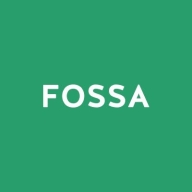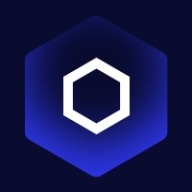

Sonatype Lifecycle and FOSSA are leading solutions in the open-source governance and compliance market. Sonatype Lifecycle has the upper hand due to its comprehensive integrations and proactive security capabilities, although FOSSA excels in license compliance and interoperability.
Features: Sonatype Lifecycle supports a wide range of integrations and offers proactive security capabilities, making it ideal for automating open-source governance. It provides reliable vulnerability alerts and alternative secure suggestions, enhancing continuous monitoring. FOSSA is strong in license compliance, deep dependency scanning, and industry-leading interoperability. It efficiently handles open-source management with automated processes and precise policy adherence.
Room for Improvement: Sonatype Lifecycle needs improvement in integration with certain platforms like TeamCity, broader language support, and real-time notifications. Users experience issues with transitive dependencies and plugin limitations. FOSSA could benefit from better project categorization, in-app triage enhancements, and expanded reporting capabilities. Users report challenges in managing numerous projects and dependencies and inadequate support for snippet matching and security scanning.
Ease of Deployment and Customer Service: Sonatype Lifecycle is typically deployed on-premises, offering flexibility with private and hybrid cloud configurations. It is praised for its quick response and thorough assistance. FOSSA is favored for its cloud deployment options and ease of setup, supported by a responsive technical team. While Sonatype's engagement structure is well-regarded, FOSSA's straightforward deployment and helpful customer service are notable.
Pricing and ROI: Sonatype Lifecycle's pricing is competitive and fair, though some find it slightly expensive, particularly with additional feature packs. Its bundled licensing model offers flexibility with significant ROI from improved security hygiene and reduced technical debt. FOSSA's pricing is average but justified by its comprehensive feature set. It is recognized for cost-effectiveness, particularly in legal and compliance contexts. Both solutions provide ROI in security improvements and operational efficiencies, though Sonatype users sometimes express concerns about added costs for feature expansions.
| Product | Market Share (%) |
|---|---|
| Sonatype Lifecycle | 4.7% |
| FOSSA | 3.1% |
| Other | 92.2% |

| Company Size | Count |
|---|---|
| Small Business | 5 |
| Midsize Enterprise | 1 |
| Large Enterprise | 8 |
| Company Size | Count |
|---|---|
| Small Business | 13 |
| Midsize Enterprise | 8 |
| Large Enterprise | 29 |
Sonatype Lifecycle enhances enterprise security, helping reduce software risk efficiently. It offers automation and high-quality data to manage open source and AI risk across the SDLC, facilitating quicker issue resolution.
Sonatype Lifecycle reduces software vulnerabilities by offering advanced automation capabilities, ensuring reliable management of open source and AI risks. Through Golden Pull Requests, smart recommendations, and zero-effort fixes, it helps maintain software quality without disrupting development. Its adaptable policies enforce security, legal, and quality standards effectively, reducing potential rework and production issues. The platform provides deep insights into vulnerability, license, quality, and architecture, allowing teams to prioritize risks effectively while continuously monitoring changes. Comprehensive enterprise reporting boosts visibility into the effectiveness of security programs.
What features does Sonatype Lifecycle offer?Sonatype Lifecycle is widely used to enhance security across industries by automating DevSecOps and integrating into build pipelines. Companies employ it for proactive monitoring of third-party libraries, ensuring compliance with licensing standards, and managing firewalls to prevent insecure components. It supports organizations in maintaining robust software supply chain security.
We monitor all Software Composition Analysis (SCA) reviews to prevent fraudulent reviews and keep review quality high. We do not post reviews by company employees or direct competitors. We validate each review for authenticity via cross-reference with LinkedIn, and personal follow-up with the reviewer when necessary.